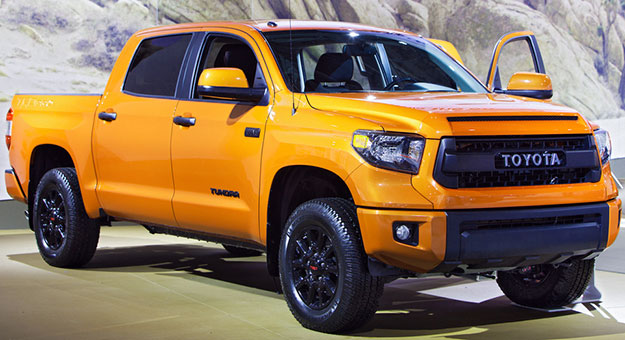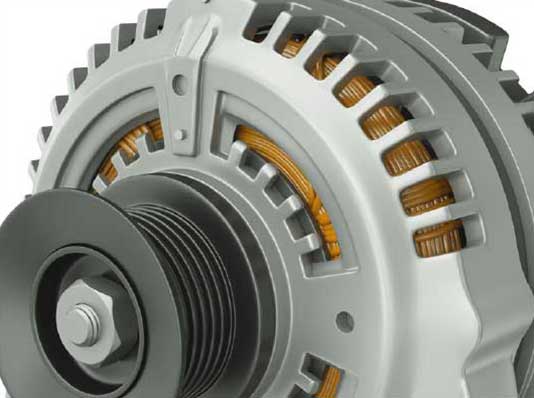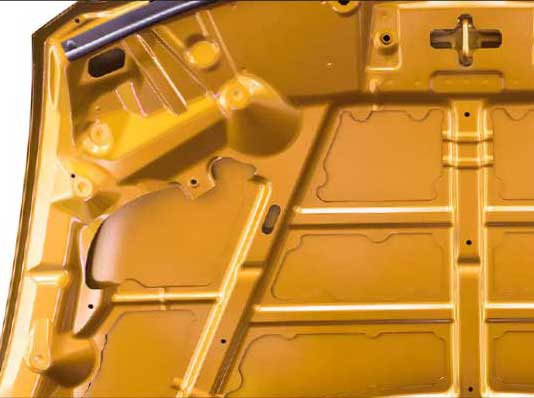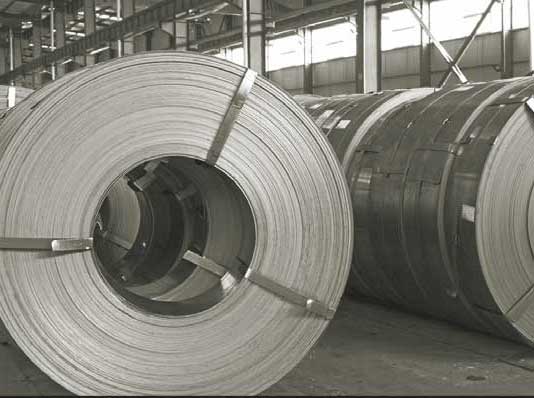Texas Automotive Manufacturing Growing, Going Fast Transportation Industry is Driven to Succeed
The wheels started coming off Detroit’s once unstoppable automotive industry some four decades ago, and the trend only accelerated in recent years. More than half of its jobs vanished between the late 1990s and 2012.

But while Michigan’s auto plants were being shuttered, Texas was opening doors. The state’s positive business environment has encouraged several major manufacturers of autos, parts, engines and commercial vehicles to put down roots in our state, including Peterbilt, GM, Toyota and Caterpillar.
Today, Texas ranks sixth nationally in automotive manufacturing employment, and second in the value of its exports of transportation equipment (motor vehicles, vehicle bodies, trailers and parts).

Leon Handt
Assistant General Manager of Operations,
Peterbilt Motor Company,
Denton, Texas
For iconic heavy-duty truck manufacturer Peterbilt, Texas’ advantages include geography and government collaboration.
“With proximity to interstates and major highways, North Texas serves as a convenient, cost-effective point of origin to serve our more than 300 dealer locations,” says Leon Handt, assistant general manager of operations for Peterbilt Motor Company in Denton. “Texas has a deep resource pool for skilled, educated employees,” he says, adding that the relatively low cost of living helps Peterbilt recruit and retain workers here.
“And Texas is proactive in attracting and keeping corporations,” Handt says. "Government at all levels — local, county and state — creates collaborative relationships with companies and provides incentives to conduct business here."
A Major Automotive Exporter
Texas is second only to Michigan in the value of its automotive exports.
Roll over the chart for specific values.
Source U.S. Census Bureau Foreign Trade Division
U.S. Down, Texas Up
In the last 10 years, U.S. automotive manufacturing employment declined significantly, but rose in Texas.
Roll over the chart for specific values.
Download chart data.
Source: U.S. Energy Information Administration
Helping the Industry Accelerate
For McAllen, the city’s location is a big draw.
“As a Border community, we focus on developing both sides of the river,” says McAllen Economic Development Corporation (EDC) President and CEO Keith Patridge. “We look at McAllen and Reynosa [Mexico] as one metro area with a river running through it. The south side has some of the most competitive labor rates in the world. And the north side is the largest market in the world.”
McAllen EDC has used that cost-competitiveness to attract automotive companies to the area. “Over the 27 years the EDC has existed, we've recruited more than 650 companies to McAllen and Reynosa, and 55 to 60 of those are automotive suppliers.”
In Bexar County, the 2003 launch of the Toyota Tundra manufacturing plant was accompanied by the arrival of major suppliers to the company, several of which teamed with local partners to assist them in becoming direct suppliers to Toyota as well.
“Part of what makes a plant efficient is the density and proximity of its suppliers to the mothership,” says David Marquez, executive director of Bexar County Economic Development. “That reduces the cost of logistics and the risk associated with supply chain distance.”
The Bexar EDC has taken this concept to the next level by creating the Texas-Mexico Automotive Supercluster (TMASC), a public-private initiative with both Mexican and American partners that promotes the growth and development of the region’s automotive industry (see sidebar below).
Skilled Workforce Needed
Today, the U.S. is seeing some resurgence in auto manufacturing. Some competing nations have seen their costs and regulatory burdens rise, while in the U.S. energy and transportation costs have fallen and streamlined technical processes have improved productivity. The upturn has even resulted in “reshoring,” the return of some manufacturing jobs to America.
But Texas will need an adequate employee base to keep its share of the automotive industry in motion. The state’s relatively high birth rates and young workforce equate to a large supply of labor that should continue into the foreseeable future. In McAllen, for instance, Patridge reports that the average worker’s age is around 28.
And we need more workers with specialty skills, Marquez says.
“Someone who can run an automotive welding robot or a totally automated, multi-spindled lathe — that’s a rare skill,” he says. “It takes more than a short class to produce a skilled journeyman.”
Patridge concurs this is a challenge in McAllen. “We’re working closely with South Texas College, the University of Texas at Rio Grande Valley and public schools, reaching down into middle school to start focusing kids on opportunities that exist in technical areas.”
GM, whose Arlington plant celebrated its 60th anniversary last year, recently partnered with Tarrant County College to implement a program funded by a November 2013 Skills Development Fund grant from the Texas Workforce Commission.
With the $868,179 grant, “the program trained more than 500 new and incumbent workers in hydraulics and pneumatics, welding, carpentry maintenance, project management and more,” says Bob Ferguson, GM’s senior vice president for Global Public Policy. “Those trained will include electricians, stationary engineers, toolmakers, millwrights and industrial engineers.”
Welcome Back, Shop Class!
Both Patridge and Marquez specifically mention a fairly recent development in Texas education.
Under the 2013 Texas Legislature’s House Bill 5, high school students can earn credit toward graduation by pursuing their interests in one of five elective tracks (although some school districts do not offer all five). Ninth-grade students now are required to select a specific area of study, called an “endorsement,” which will help prepare them for college, technical school or the workplace.
Supporters hope school districts that have previously eliminated technical training programs may revive them for students working toward the business and industry endorsement.
For the automotive industry, HB 5 means coursework in areas such as welding and automotive technology can count toward graduation. Students also may be able to earn industry-recognized licenses or certifications. And districts can partner with community colleges and industry to develop courses that address workforce needs and provide technical training.
Patridge says this is the skills development the industry wants — “High school juniors and seniors [who] are working toward an associate’s degree while in high school.”
Training on the Job
Of course, many manufacturers have their own employee training programs.
“We provide comprehensive, ongoing training for all positions,” Handt reports. “Peterbilt utilizes both internal and external training resources, and our competitive benefits package provides incentives for continuing education and tuition reimbursement.”
GM has several initiatives that encourage and support education in science, technology, engineering and mathematics (STEM) and other fields important to the automotive industry.
“Our Buick Achievers Scholarship Program has awarded more than $2 million in scholarships to 72 Texas students since the program began,” says Ferguson. The scholarships are available to students attending accredited four-year colleges and universities.
GM’s University/Partner Organization Program, moreover, provides annual grants to institutions and professional organizations in STEM and other fields. In the past five years, the University of Texas at Austin, University of Texas at El Paso, University of Texas at San Antonio and Texas Tech have received nearly $700,000 combined.
Strategies for a Strong Future
The outlook is bright for Texas’ automotive industry. In McAllen, that means support companies.
“[Last summer] we had 120 Japanese supplier companies all in town at the same time,” Patridge says. “We’re currently working to bring in another 100 to 110 suppliers to show them what we have to offer. By maintaining our supplier presence, we hope companies will continue to look at the border as a strategic location to serve auto clusters both in the United States and Mexico.”
He also hopes the region will attract more applied research and development (R&D), an important and well-paid aspect of the industry. Four Japanese companies are already undertaking R&D activities in the McAllen area.
TMASC plans to update its 2012 market study and develop a new collaboration strategy to build renewed interest in the initiative.
“We're ready to get back out there with our message,” Marquez says.
But Texas will need skilled workers, and recruiting the best talent will play a vital role.
“Training is a critical part of the solution, but the rest lies in attracting people from around the country or around the world to generate economic activity in Texas,” Marquez says.
“Companies need to come up with creative ways to recruit,” he says. “We should use the same strategies we use to attract companies to attract employees with the skill sets we need. That’s a critical, competitive element.” FN
Learn more about the Texas automotive manufacturing industry.




